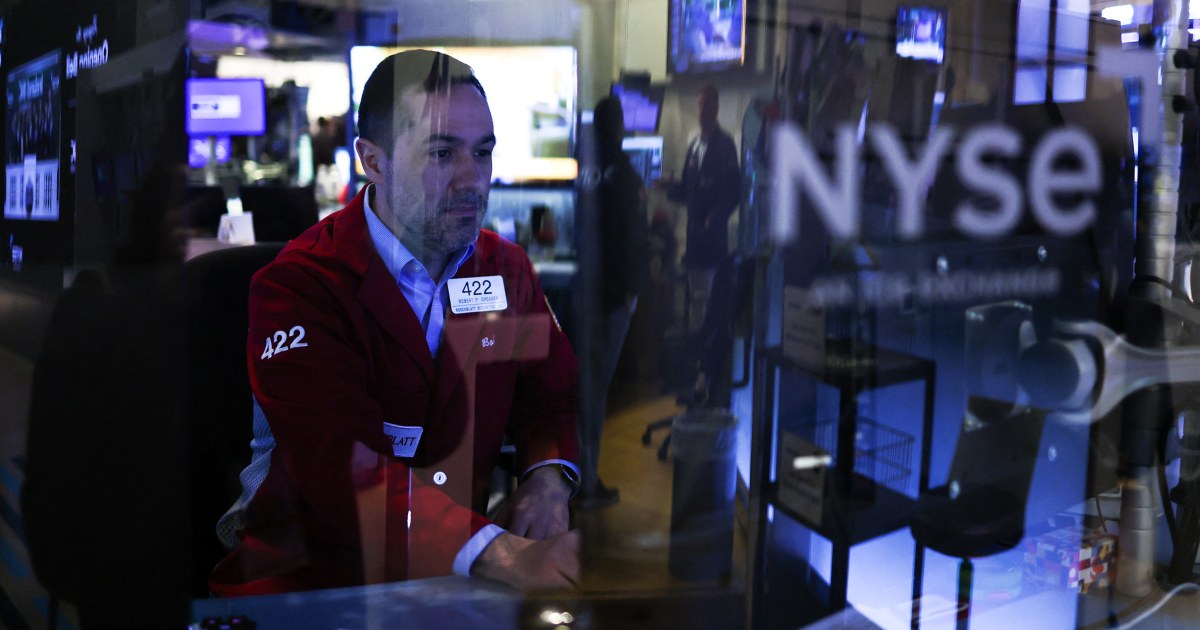Market Turmoil: Understanding the Ongoing 2025 Sell-Off
As stocks open lower this Tuesday, investors are left grappling with the implications of the 2025 sell-off. This downturn has sent shockwaves through the financial markets, prompting a deeper investigation into the factors contributing to this significant market turmoil. Understanding these causes is essential for making informed investment decisions during these turbulent times.
What Triggered the 2025 Sell-Off?
The sell-off that has characterized the early months of 2025 can be traced to multiple interrelated factors. Here are some of the most significant:
- Interest Rate Hikes: Central banks around the globe have been tightening monetary policy to combat rising inflation. This has led to increased interest rates, making borrowing more expensive and slowing down economic growth. Investors are reacting to these changes by reassessing their risk exposure, resulting in widespread sell-offs.
- Geopolitical Tensions: Heightened tensions in Eastern Europe and ongoing trade disputes have created an unpredictable environment for investors. The uncertainty surrounding international relations has prompted many to adopt a more cautious approach to investing.
- Corporate Earnings Disappointments: Several major companies have reported disappointing earnings for the previous quarter, leading to a reevaluation of stock valuations. When profits don’t meet expectations, investors often sell off shares to mitigate potential losses.
- Market Speculation: The rapid rise in stock prices over the previous years led to significant speculation, creating an inflated market. A correction was inevitable, and many analysts believe that the current sell-off is merely a return to more sustainable valuation levels.
The Impact of the Sell-Off on Different Sectors
The 2025 sell-off has not affected all sectors equally. Here’s a closer look at how various industries are responding:
- Technology: The tech sector has been one of the hardest hit. With rising interest rates, the future cash flows of tech companies, which often rely on growth projections, are being discounted more heavily. As a result, stocks in this sector have seen significant declines.
- Consumer Goods: Companies producing essential goods have fared better than those in discretionary sectors. However, even they are feeling the pinch, as consumer spending is expected to slow down due to increased prices and economic uncertainty.
- Energy: Surprisingly, the energy sector has shown resilience amidst the turmoil. With ongoing global energy demands and fluctuating oil prices, this sector has managed to maintain investor interest.
- Financial Services: Banks and financial institutions are experiencing a mixed impact. While higher interest rates can improve profit margins on loans, increased economic uncertainty is leading to fears of higher default rates, causing volatility in stock prices.
What Does This Mean for Your Investments?
In light of the ongoing sell-off, it is crucial for investors to approach their portfolios with caution and strategic foresight. Here are some considerations to keep in mind:
- Diversification: Ensure that your investment portfolio is well-diversified across different asset classes and sectors. This can help mitigate risks associated with any single investment or sector downturn.
- Focus on Quality: During market turmoil, it’s often beneficial to focus on high-quality stocks with strong fundamentals and solid balance sheets. These companies are better positioned to weather economic downturns.
- Long-Term Perspective: It’s essential to maintain a long-term perspective during market volatility. Historically, markets have rebounded from downturns, and investors who remain patient often reap the rewards.
- Stay Informed: Keep an eye on economic indicators, corporate earnings reports, and geopolitical developments. Being informed can help you make timely decisions and adjust your investment strategy as necessary.
Emotional Resilience in Investing
Investing during periods of market turmoil can be emotionally taxing. Fear and uncertainty can lead to impulsive decisions, which often result in losses. Here are some strategies to maintain emotional resilience:
- Set Clear Goals: Establishing clear investment goals can help guide your decisions during volatile times. Whether you’re investing for retirement, education, or another purpose, having a target can keep you focused.
- Avoid Panic Selling: Resist the urge to sell off investments in a panic. Often, the best course of action is to stay the course and avoid making emotional decisions.
- Consult Professionals: If you’re feeling overwhelmed, consider consulting with a financial advisor. They can provide valuable insights and help you develop a personalized strategy to navigate market challenges.
Looking Ahead: Potential Recovery Signs
While the 2025 sell-off presents significant challenges, there are signs that a recovery could be on the horizon. Analysts are closely monitoring several factors:
- Inflation Trends: If inflation begins to stabilize, central banks may halt interest rate hikes, which could provide some relief to the markets.
- Corporate Earnings Recovery: As companies adapt to new economic conditions, there’s potential for improved earnings reports in the coming quarters, which could bolster investor confidence.
- Geopolitical Stability: Any signs of easing tensions internationally could help restore market confidence and encourage investment.
Conclusion: Navigating the Market Turmoil
The ongoing sell-off in 2025 has undoubtedly created a challenging environment for investors. However, understanding the causes behind this market turmoil can empower individuals to make informed decisions. By focusing on diversification, maintaining a long-term perspective, and remaining emotionally resilient, investors can better navigate these turbulent waters. As history has shown, markets have a tendency to recover, and those who remain diligent and informed are often the ones who come out ahead in the end.
In these uncertain times, staying informed and adaptable is key. As we move through 2025, let’s keep a watchful eye on the market dynamics and prepare for the opportunities that may arise from this sell-off.
See more CNBC Network



